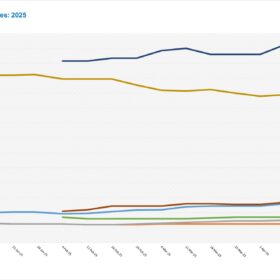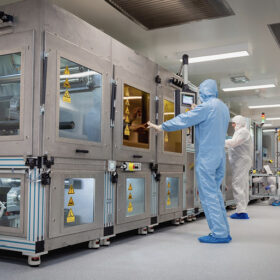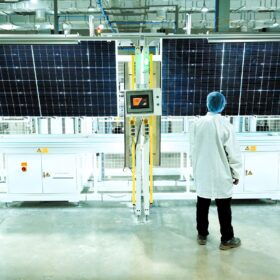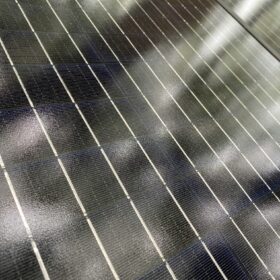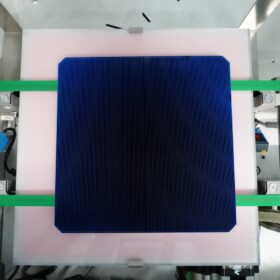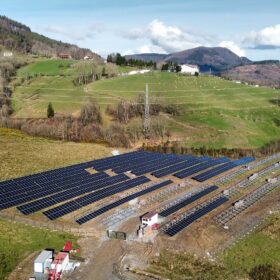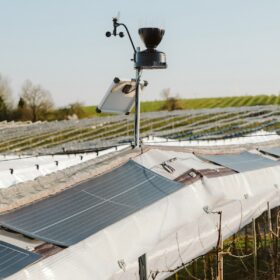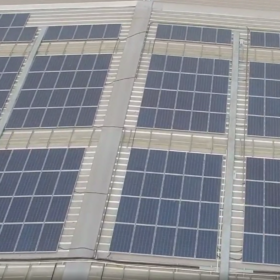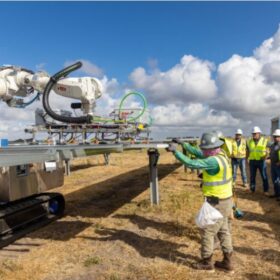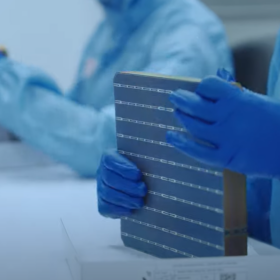FOB China module prices rise amid growing market expectations of sharp correction by end-Q2
In a new weekly update for pv magazine, OPIS, a Dow Jones company, FOB China TOPCon below 450 W modules for spot loading were stable at $0.093/W, with price indications between $0.087-0.100/W. Furthermore, it reveals that current price increases are not being uniformly adopted across all Chinese manufacturers, with significant price differences—often several euro cents— being observed between the Top 5 and Top 10 manufacturers.
Push on to accelerate next generation PV materials
There is no consensus on the future of PV technology but there is general agreement that existing silicon solar cells do not represent the pinnacle of solar energy generation. This has resulted in the exploration of alternative materials and device architectures, with tandem solar cells emerging as the front runner for the next generation of solar cells to be deployed at scale.
Waaree Energies to double its solar module manufacturing in Texas
This expansion comes at a critical time for the U.S. solar industry with much uncertainty around supply chains and pressure to increase domestic output.
India’s solar exports face new U.S. tariff hurdles but are expected to stay competitive
India’s solar exports vis a vis other countries could still continue to remain competitive, though the margins could take a marginal hit.
“Indian solar manufacturers cannot merely catch up—we must lead”
Suhas Donthi, CEO of Emmvee, speaks with pv magazine about India’s evolving role in the global solar supply chain, the risks of oversupply, and what it will take for Indian manufacturers to lead on the world stage.
International PV module pricing may rise to $0.11/W by year end
International PV module prices, driven by Chinese averages, will likely rise from $0.08/W to $0.10/W today to $0.11/W by the end of 2025 and potentially $0.13/W by 2027, says Clean Energy Associates (CEA), noting that heterojunction and back-contact technologies now make up 12% of global module capacity.
Current UV tests overestimate TOPCon solar module degradation
Fraunhofer Institute for Solar Energy Systems ISE (Fraunhofer ISE) has found that current UV testing methods overestimate degradation in tunnel oxide passivated contact (TOPCon) solar modules, as dark storage after UV exposure causes temporary efficiency losses that largely reverse under sunlight.
Kosol Energie secures 400 MW PV module order for NTPC’s Khavda Solar Project
Kosol Energie spokesperson told pv magazine that out of the total 400 MW solar module order, 55 MW has already been supplied to the Khavda project site. The balance will be supplied in the next two-three months.
How to reconfigure PV modules in degraded solar plants
Indian scientists have developed six different strategies to reconfigure solar modules in degraded PV assets. Their analysis showed which conditions make the reconfiguration of an underperforming solar plant profitable.
Fraunhofer ISE testing agrivoltaics on standard weather protection covers
Fraunhofer ISE and German weather protection specialist VOEN Vöhringer are testing an agrivoltaic system that uses existing crop cover structures to support solar modules, eliminating the need for a dedicated mounting system.
